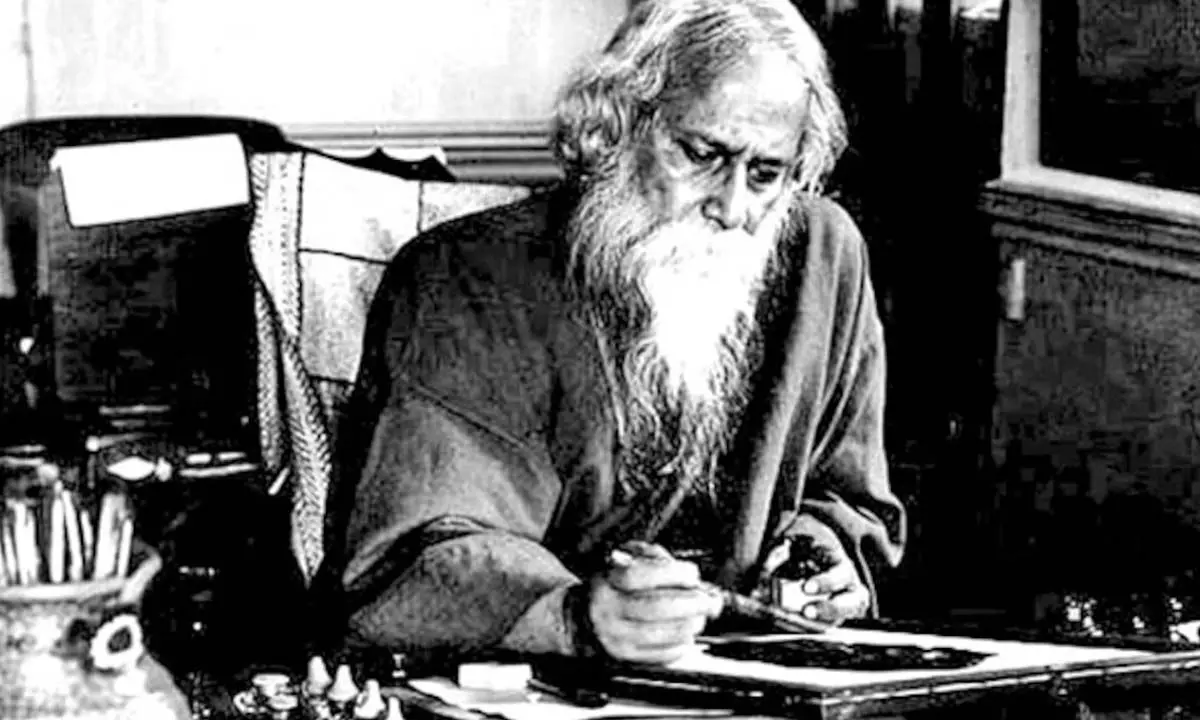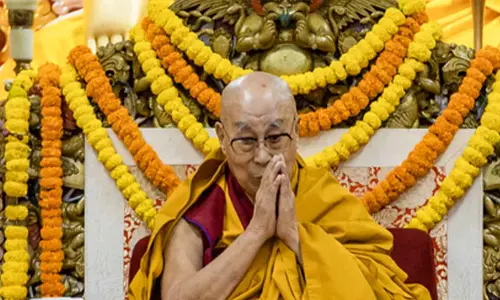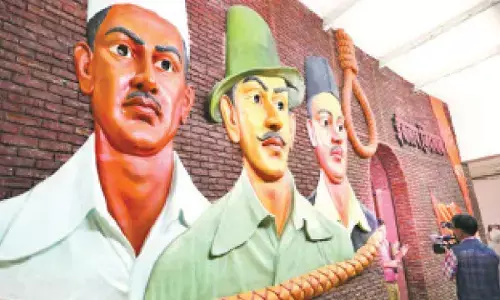Rabindranath Tagore’s 83rd Death Anniversary: honouring the Bard of Bengal

The name Rabindranath Tagore evokes a deep sense of pride and admiration among Indians. Today, August 7, 2024, marks the 83rd death anniversary of this legendary figure, who passed away in 1941.
The name Rabindranath Tagore evokes a deep sense of pride and admiration among Indians. Today, August 7, 2024, marks the 83rd death anniversary of this legendary figure, who passed away in 1941. Tagore's multifaceted contributions as a Nobel Laureate poet, composer, playwright, painter, and social reformer have left an indelible mark on Indian literature and culture. His profound works, including the renowned poetry collection "Gitanjali," which comprises over 150 poems, continue to inspire and shape the literary landscape of India.
The Legacy of Rabindranath Tagore
Tagore's unwavering patriotism and deep love for Bengal are evident in his works. His songs remain a staple in West Bengal, resonating with people even today. His creations have inspired countless films, short stories, reprised songs, and paintings, reflecting the lasting impact of his artistic genius.
10 Inspirational Quotes by Rabindranath Tagore
1. "Faith is the bird that feels the light when the dawn is still dark."
2. "Clouds come floating into my life, no longer to carry rain or usher storms, but to add color to my sunset sky."
3. "Let me not pray to be sheltered from dangers, but to be fearless in facing them. Let me not beg for the stilling of my pain, but for the heart to conquer it."
4. "If I can’t make it through one door, I’ll go through another door—or I’ll make a door. Something terrific will come no matter how dark the present."
5. "You cannot cross the sea merely by standing and staring at the water."
6. "Most people believe the mind to be a mirror, more or less accurately reflecting the world outside them, not realizing on the contrary that the mind is itself the principal element of creation."
7. "A mind with all logic is like a knife with all blades. It makes the hand bleed that uses it."
8. "Do not say, ‘It is morning,’ and dismiss it with the name of yesterday. See it for the first time as a newborn child that has no name."
9. "It is very simple to be happy, but it is very difficult to be simple."
10. "I slept and dreamt that life was joy. I awoke and saw that life was service. I acted and behold, service was joy."
Interesting Facts About Rabindranath Tagore
1. Early Start in Poetry: Tagore began writing poems at the tender age of eight and published his first book under the pseudonym 'Bhanusiṃha' at sixteen.
2. Playwright Prodigy: At the age of 20, he wrote his first play, "Valmiki Pratibha," which was staged at his home, JorasankoThakurbar. Tagore himself played the role of Valmiki.
3. Gitanjali's Global Acclaim: When Tagore translated "Gitanjali," the preface was penned by the esteemed English poet W.B. Yeats.
4. Meeting with Einstein: In 1930, Tagore was invited to Albert Einstein's house in Caputh, where they engaged in profound discussions on religion and science.
5. Rejection of Knighthood: As a protest against British rule following the Jallianwala Bagh massacre, Tagore renounced his Knighthood on May 31, 1919.
6. Nobel Laureate: Tagore was the first Asian and non-European to be awarded the Nobel Prize in Literature.
7. Foundation of Visva-Bharati University: He used his Nobel Prize cash to establish the Visva-Bharati University in Shantiniketan.
8. Extensive Travels: From 1912 onwards, Tagore spent a significant amount of time traveling outside India.
9. Creator of Sri Lanka's National Anthem: Tagore is credited with creating the poem that inspired Sri Lanka's national anthem, "Sri Lanka Matha," which was translated into Sinhalese.
10. Educational Innovator: He established an experimental school at Shantiniketan in rural West Bengal, emphasizing holistic and creative learning.
Rabindranath Tagore's legacy continues to influence and inspire, making his works timeless treasures of Indian culture.










